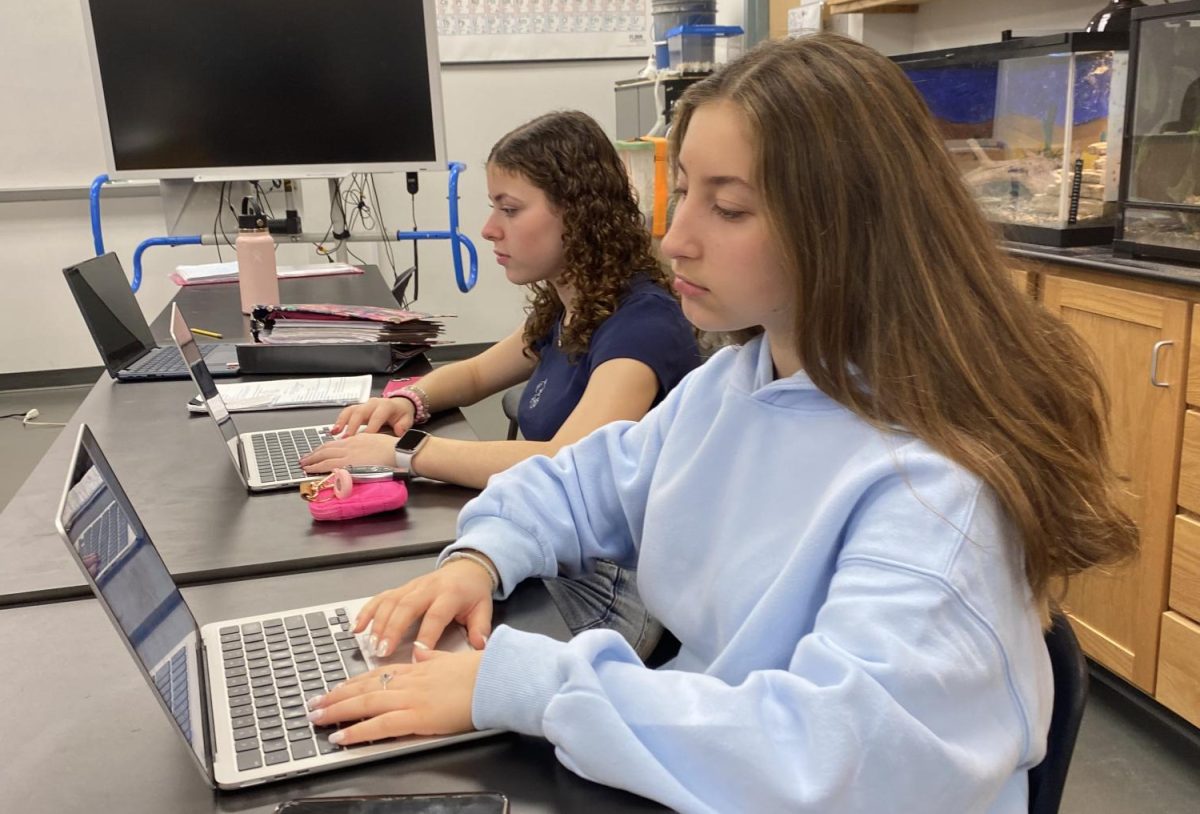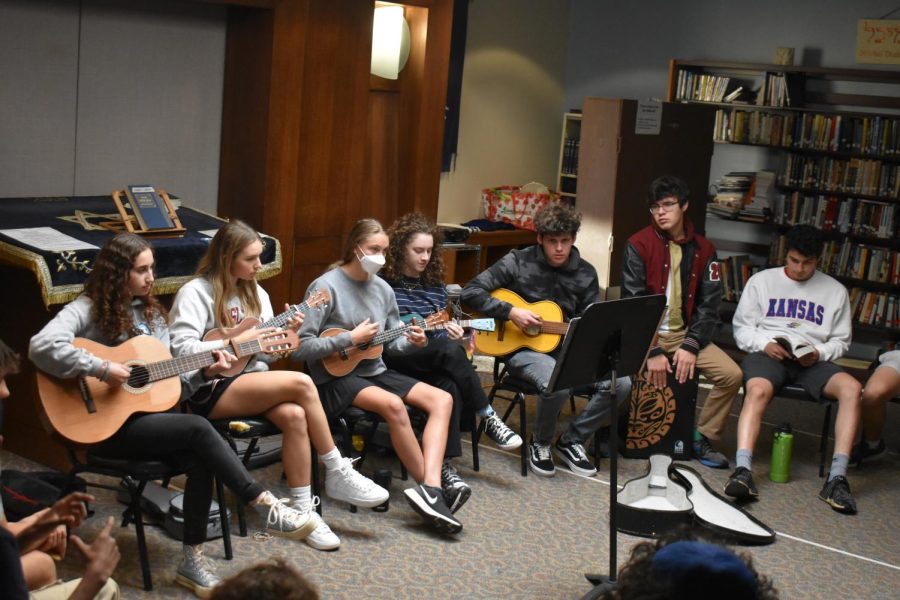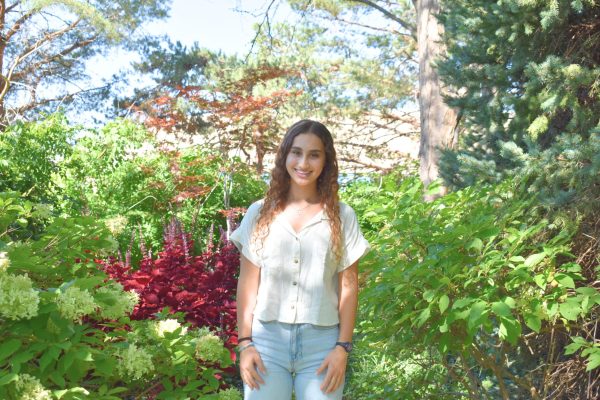How Does Music Help Connect You to Your Religion?
The 2022-23 Musical Prayers group plays for the Egalitarian Minyan on Friday morning. Photo by Aviva Clauer
May 15, 2023
Musical Prayers is a student-led club where HBHA high school students take the lead every Friday morning and play different instruments with the everyday prayers.
Musical prayers have allowed HBHA students to experience different traditions and ways of connecting with G-d. This club was founded by HBHA alums Eliana Schuster and Haidee Clauer in the 2015-16 school year.
Schuster says, “For having a pluralistic school, it was kind of something that we were both excited about, the prospect of expanding the options for prayers and expanding different ways that people can connect spiritually in a more poetic way.”
Clauer and Schuster explained that going from fun singing and dancing during Taste of Shabbat [a weekly school gathering in celebration of the beginning of Shabbat] to sitting down and reciting the same everyday prayers ruined their moods.
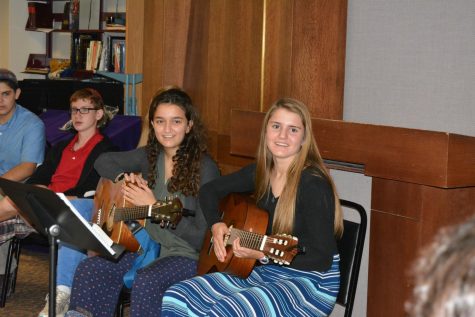
“[Musical prayers] only happened because we and the current students are passionate about it… You get out of it what you put into it and that was really reflected in the participation that goes with musical prayers,” Clauer expressed.
Music is one way that many people are able to connect to Judaism and other aspects of the religion. Schuster said, “Where I find meaning in prayer is almost entirely tied to song. I think that the way that we connect to each other often has to do with the feeling that comes from hearing voices join together in a space… the kavanah [intention] that can come with prayer.”
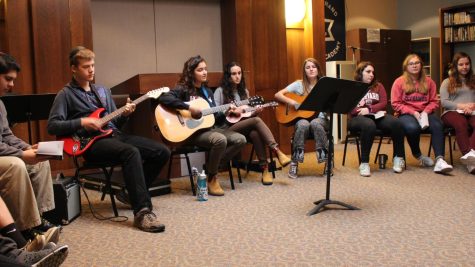
Noa Levine, an Egalitarian Minyan attendee, says, “I really like musical prayers because I feel like the instruments kind of bring everything full circle… you’re singing during prayers normally, but the instruments make it feel very alive.”
She explained that the feeling of community she gets when being able to sing with her friends is something that she cherishes while listening to the prayers on Friday mornings.
This concept is also important when it comes to praying in your community with your synagogue congregation. Tahl Ben-Yehudah, Hazzan of Congregation Beth Shalom, says, “Music has the quality of being able to cut through all the noise of language…music touches the soul in a way that is universal, so it doesn’t matter what language you’re in, when you hear certain chords, certain notes played next to each other, you’re going to feel a certain way.”
Ben-Yehudah expresses that music allows us to further connect to the Jewish experience that is relating to G-d and many choose to do that through music.
Ben-Yehudah says, “When you throw instruments into the mix, then the music is communicating to us differently, and for some people, it just hits them stronger.”
Synagogues all over the world are able to incorporate musical instruments into their services. Adding this sort of variety to the school prayer experience allows HBHA students to test new waters and experience new feelings or emotions when connecting with G-d.
When asked if it’s important for the students at HBHA to have the option for musically-led prayers, Ben-Yehudah replied, “Only if it matters to them.” It is important that different options are offered, but it’s also important to remember that everyone is different and everyone connects to their religion in their own unique way.
Musical prayers have inspired many people in the past and will continue to do so for many years to come.




































